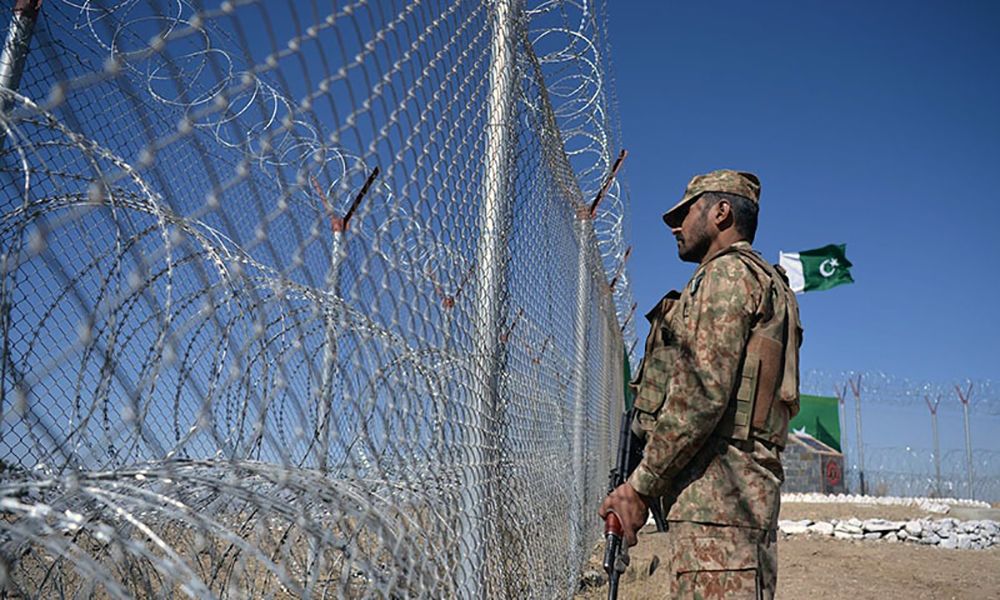Afghanistan-Pakistan clashes leave scores dead amid rising tensions

The Afghanistan-Pakistan border has erupted into violent clashes over the past several days, marking a dangerous escalation in regional tensions. According to reports from both sides, casualties have already mounted. Pakistani officials claim that nearly 200 Afghan fighters were killed in retaliatory strikes, while the Taliban-led Afghan government asserts that 58 Pakistani soldiers lost their lives in the conflict.
This flare-up comes at a time when global attention is already strained by ongoing crises, including the Russia-Ukraine war and the recent ceasefire between Israel and Palestine. The emergence of a new conflict in South Asia has sparked alarm across the international community, particularly given Pakistan’s status as a nuclear-armed state.
The border, which spans over 2,600 kilometers, has been closed following the exchange of fire, halting trade and civilian movement. Analysts warn that this could trigger a humanitarian crisis in the region, especially for communities dependent on cross-border access.
With tensions running high and diplomatic channels strained, international organizations and neighboring countries are urging both sides to exercise restraint and seek peaceful resolution. The prospect of a broader conflict looms large, threatening to destabilize an already volatile region.
Speaking to Azernews, political analyst Imran Khalid, who is in Pakistan now – emphasized that the clashes between Afghanistan and Pakistan erupted over the weekend, stemming from long-simmering tensions along the Durand Line, the disputed border that has divided Pashtun communities for over a century. What started as isolated skirmishes escalated into heavy fighting when Afghan forces reportedly attacked Pakistani border posts in the Torkham and Spin Boldak areas.
“Pakistan responded with artillery, airstrikes, and ground operations, capturing at least 19 Afghan positions according to local reports. The trigger appears to be Pakistan's frustration with Kabul's alleged support for the Tehrik-i-Taliban Pakistan (TTP), a militant group that has launched deadly attacks inside Pakistan from Afghan soil. Islamabad has long accused the Taliban regime of providing safe havens to TTP fighters, allowing them to orchestrate cross-border terrorism that has killed Pakistani soldiers and civilians. This isn't new; the TTP's resurgence since the Taliban's 2021 takeover has turned the border into a powder keg,” Imran Khalid said.
The political analyst detailed that the Afghan government's overconfidence played a big role in this flare-up. Their foreign minister, Amir Khan Muttaqi, spent eight days in India starting October 9, marking the first high-level Taliban visit to New Delhi since Kabul fell.
“During that trip, Muttaqi met with Indian External Affairs Minister S. Jaishankar and issued a joint statement that irked Pakistan, including references to Kashmir that Islamabad saw as meddling. Bolstered by Indian diplomatic overtures and potential economic ties, the Taliban seemed emboldened, perhaps miscalculating that such backing would deter Pakistani retaliation. India has been engaging Kabul quietly, maintaining a technical mission there, but this visit felt like a green light for Afghan assertiveness. The timing is no coincidence - the clashes intensified right as Muttaqi wrapped up his tour, suggesting Kabul thought it could push boundaries without consequence,” he said.
Imran Khalid added that Pakistan's response has been swift and decisive, practically bulldozing Afghan checkpoints in retaliatory strikes. He noted that Pakistani forces used jets and tanks to overrun Taliban positions, claiming over 200 Afghan fighters killed while suffering 23 losses themselves. Afghanistan countered by saying it killed 58 Pakistani troops, but the asymmetry is clear: Kabul's forces, despite their bravado, are no match for Pakistan's conventional military edge in airpower, artillery, and logistics. The border crossings are now sealed, halting trade and stranding thousands, which hurts Afghanistan's fragile economy far more than Pakistan's.
“As for whether these clashes will end soon or spiral into full-scale war, I doubt we'll see a prolonged conflict, but a quick resolution seems unlikely without major concessions from Kabul. Muttaqi, fresh from India, is now calling for negotiations and a ceasefire in public briefings, urging de-escalation to avoid broader fallout. Even U.S. President Trump, en route to a Middle East summit, has offered to mediate, boasting about his track record in solving wars. But from Islamabad's perspective, talks are pointless until Afghanistan stops harboring TTP elements and expels them. Pakistan has conducted airstrikes targeting TTP leaders like Noor Wali Mehsud in Afghan provinces such as Paktika and Khost, underscoring that counter-terrorism is non-negotiable. Iran has voiced concerns too, stepping in to urge restraint amid fears of regional instability.
If Kabul continues to play host to militants while courting external support, these skirmishes could drag on, eroding trust further. Yet a full war benefits no one—Pakistan holds the upper hand militarily, and Afghanistan can't afford another front. The ball is in Kabul's court: expel the TTP, and we might see borders reopen. Until then, expect more tension, not peace,” Imran Khalid concluded.
Here we are to serve you with news right now. It does not cost much, but worth your attention.
Choose to support open, independent, quality journalism and subscribe on a monthly basis.
By subscribing to our online newspaper, you can have full digital access to all news, analysis, and much more.
You can also follow AzerNEWS on Twitter @AzerNewsAz or Facebook @AzerNewsNewspaper
Thank you!

